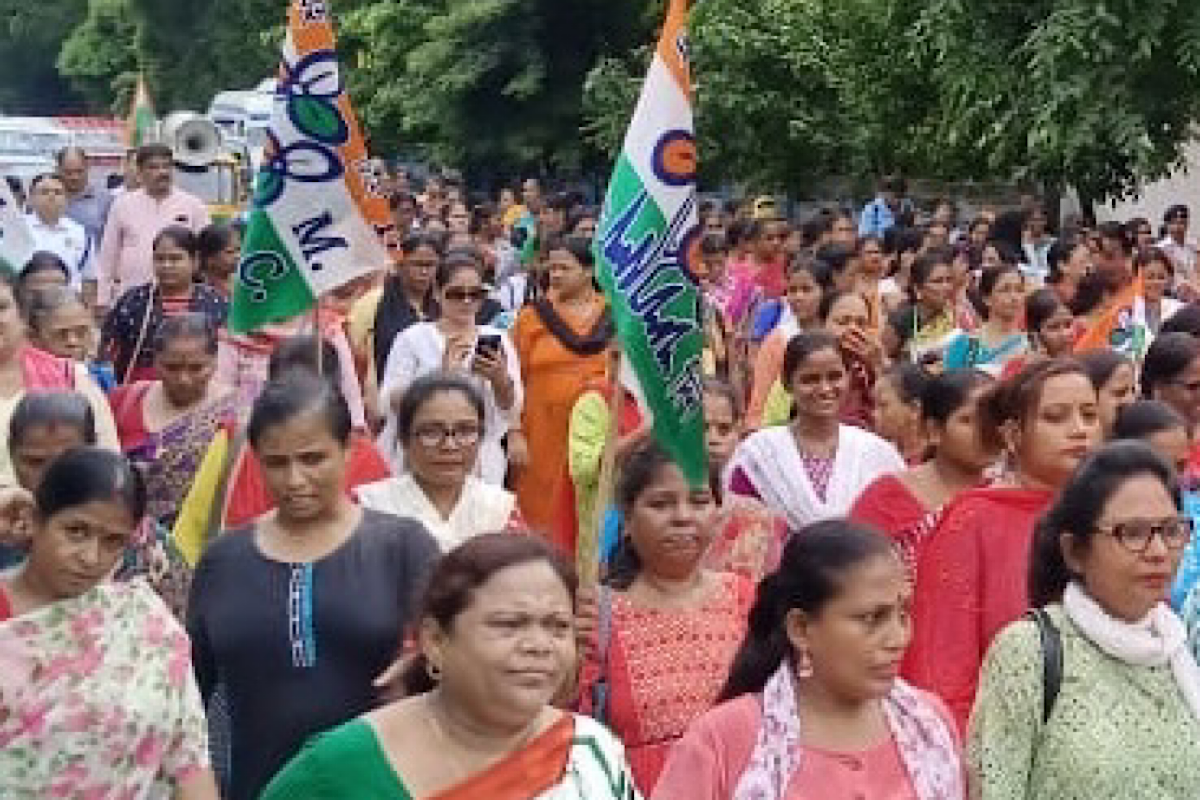Trinamool Congress will be organising a protest rally at the national capital on the issue of central dues to West Bengal government under different centrally-sponsored schemes on the occasion of Gandhi Jayanti on October 2.
“The 100- day job scheme is under a particular act which is named after the Father of the Nation Mahatma Gandhi. So on the occasion of Gandhi Jayanti this year, we will be assembling at New Delhi in demand of our legitimate dues. We will force the Union government to clear our legitimate dues. They cannot hold it back forever,” Trinamool national general secretary and the party Lok Sabha member Abhishek Banerjee said at the party’s annual Martyr’s Day programme at central Kolkata on Friday.
Advertisement
He also said that before the mega protest rally at New Delhi, Trinamool Congress will organise a “peaceful sit-in demonstration” in front of the residence of the state BJP leaders.
“The agitation will be totally peaceful and will last just for 30 minutes. After that there will be protests in front of their supreme leader in New Delhi,” he said.
Speaking on the occasion, he also attacked the Union government on the activities of the different central investigative agencies in the state. “They think that we will succumb to such pressure. But they are wrong. Trinamool Congress is like pure iron. The more it is burnt and hit, the stronger it would be,” the party’s national general secretary said.
Seconding him, the chief minister Mamata Banerjee said on October 2, if the rally is stopped, the participants will sit down and start demonstrations there. “Our movement against the Union government and BJP will continue unless our demands are fulfilled and dues are cleared. BJP has become simply intolerable now,” she said.
Speaking on the occasion, Abhishek Banerjee further said that the results of the recently-concluded panchayat elections in West Bengal proved that BJP’s organisation base has weakened substantially in West Bengal.
“In the 2021 West Bengal Assembly elections Trinamool Congress secured 48 per cent of the vote share, which has increased to 52 per cent in the recent rural civic body polls,” he said.











